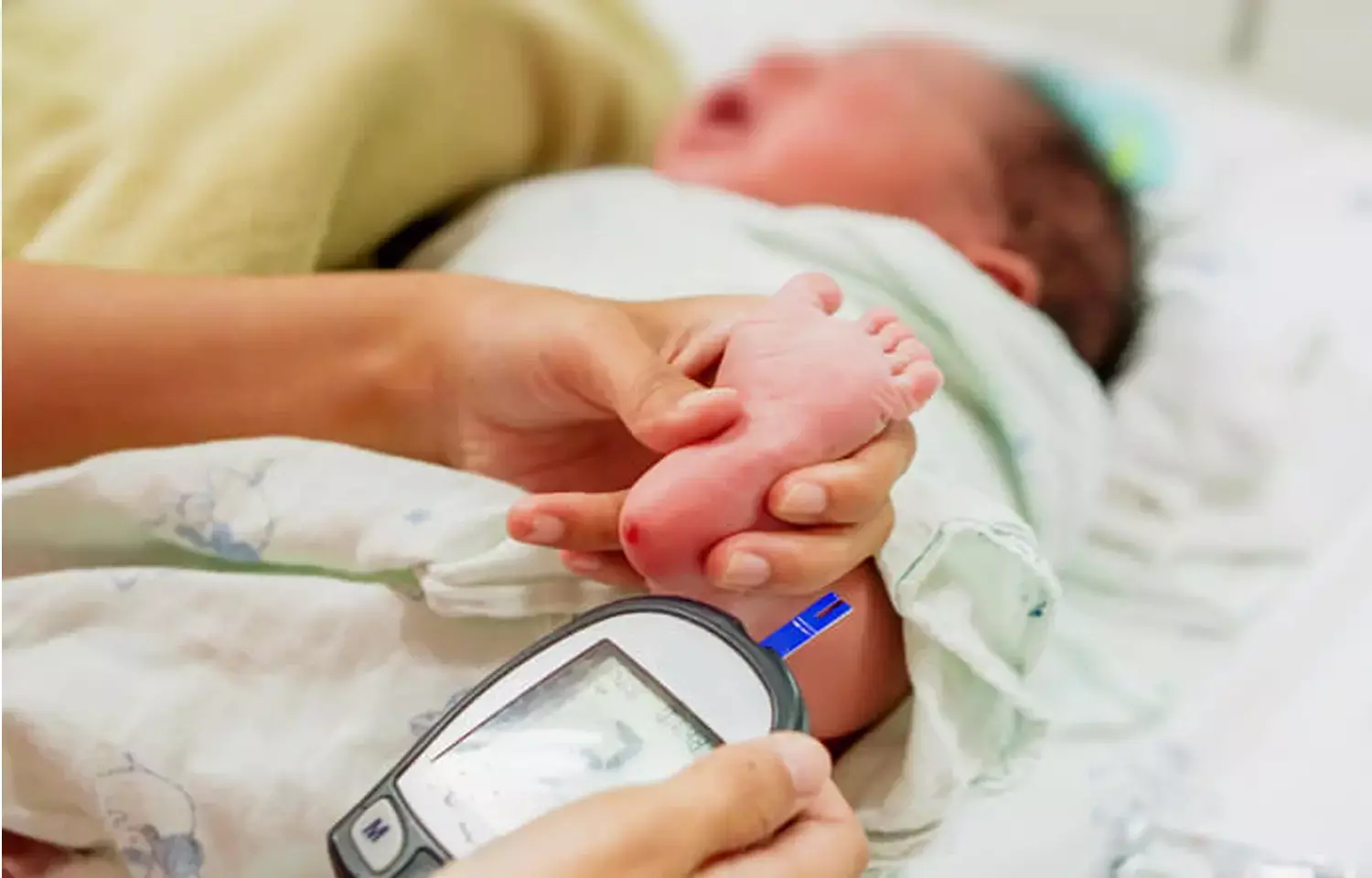- Home
- Medical news & Guidelines
- Anesthesiology
- Cardiology and CTVS
- Critical Care
- Dentistry
- Dermatology
- Diabetes and Endocrinology
- ENT
- Gastroenterology
- Medicine
- Nephrology
- Neurology
- Obstretics-Gynaecology
- Oncology
- Ophthalmology
- Orthopaedics
- Pediatrics-Neonatology
- Psychiatry
- Pulmonology
- Radiology
- Surgery
- Urology
- Laboratory Medicine
- Diet
- Nursing
- Paramedical
- Physiotherapy
- Health news
- Fact Check
- Bone Health Fact Check
- Brain Health Fact Check
- Cancer Related Fact Check
- Child Care Fact Check
- Dental and oral health fact check
- Diabetes and metabolic health fact check
- Diet and Nutrition Fact Check
- Eye and ENT Care Fact Check
- Fitness fact check
- Gut health fact check
- Heart health fact check
- Kidney health fact check
- Medical education fact check
- Men's health fact check
- Respiratory fact check
- Skin and hair care fact check
- Vaccine and Immunization fact check
- Women's health fact check
- AYUSH
- State News
- Andaman and Nicobar Islands
- Andhra Pradesh
- Arunachal Pradesh
- Assam
- Bihar
- Chandigarh
- Chattisgarh
- Dadra and Nagar Haveli
- Daman and Diu
- Delhi
- Goa
- Gujarat
- Haryana
- Himachal Pradesh
- Jammu & Kashmir
- Jharkhand
- Karnataka
- Kerala
- Ladakh
- Lakshadweep
- Madhya Pradesh
- Maharashtra
- Manipur
- Meghalaya
- Mizoram
- Nagaland
- Odisha
- Puducherry
- Punjab
- Rajasthan
- Sikkim
- Tamil Nadu
- Telangana
- Tripura
- Uttar Pradesh
- Uttrakhand
- West Bengal
- Medical Education
- Industry
Neonates with low gestational age and birthweight at increased risk of elevated BP and CKD

USA: In a new study published in the Clinical Journal of the American Society of Nephrology, it was shown that the risk of chronic kidney disease (CKD) was found to be associated with gestational age, birthweight z-score, and prenatal steroids in neonates with extremely low gestational ages.
Chronic illness is a danger for neonates born at extremely low gestational ages (less than 28 weeks). Sangeeta Hingorani and colleagues conducted this study in order to describe the prevalence of renal outcomes by gestational age and identify risk factors for their development.
The Preterm Epo Neuro Protection Trial (PENUT) trial included neonates born at exceptionally low gestational ages, and the Recombinant Erythropoietin for Protection of Infant Renal Disease (REPAIReD) study assessed kidney outcomes. At 2 years (24±2 months) corrected gestational age, kidney function, urine albumin, and blood pressure were assessed. Results from various gestational age groups were examined, and correlations between kidney-related outcomes and maternal and neonatal traits were assessed. Secondary objectives included spot urine albumin-creatinine ratio ≥30 mg/g (albuminuria) and either systolic BP or diastolic BP >90th percentile for height, age, and sex. The primary outcome was eGFR 90 ml/min per 1.73 m2 (CKD).
The key highlights of this study were:
1. 832 people in all reached the 2-year mark, and 565 (68%) of them had at least one outcome assessed.
2. In all, 297 patients (53%) had one abnormal kidney outcome, including 61 (18%) with an eGFR less than 90 ml/min per 1.73 m2, 155 (36%) with albuminuria, 65 (22%) with raised systolic blood pressure, and 128 (44%) with high diastolic blood pressure.
3. Prenatal steroids, birth weight z-score, and gestational age were linked to an eGFR of less than 90 ml/min per 1.73 m2.
4. Black race and indomethacin usage was linked to raised systolic blood pressure; severe AKI, male sex, and indomethacin use were linked to elevated diastolic blood pressure.
In conclusion, these findings highlight the need for neonatologists and nephrologists to talk to family members and other medical professionals before releasing preterm newborns from the neonatal intensive care unit about the risk of renal problems and high blood pressure.
Researchers advise testing serum creatinine and cystatin C, urine for the albumin-creatinine ratio, and blood pressure at about 2 years of age in all infants of exceptionally low gestational age. Repeat assessments and follow-up with a nephrologist are recommended for those with abnormal results.
Reference:
Hingorani, S., Schmicker, R., Ahmad, K. A., Frantz, I. D., Mayock, D. E., La Gamma, E. F., Baserga, M., Khan, J. Y., Brophy, P., & Askenazi, D. (2022). Prevalence and Risk Factors for Kidney Disease and Elevated BP in 2-Year-Old Children Born Extremely Premature. In Clinical Journal of the American Society of Nephrology (Vol. 17, Issue 8, pp. 1129–1138). American Society of Nephrology (ASN). https://doi.org/10.2215/cjn.15011121
Neuroscience Masters graduate
Jacinthlyn Sylvia, a Neuroscience Master's graduate from Chennai has worked extensively in deciphering the neurobiology of cognition and motor control in aging. She also has spread-out exposure to Neurosurgery from her Bachelor’s. She is currently involved in active Neuro-Oncology research. She is an upcoming neuroscientist with a fiery passion for writing. Her news cover at Medical Dialogues feature recent discoveries and updates from the healthcare and biomedical research fields. She can be reached at editorial@medicaldialogues.in
Dr Kamal Kant Kohli-MBBS, DTCD- a chest specialist with more than 30 years of practice and a flair for writing clinical articles, Dr Kamal Kant Kohli joined Medical Dialogues as a Chief Editor of Medical News. Besides writing articles, as an editor, he proofreads and verifies all the medical content published on Medical Dialogues including those coming from journals, studies,medical conferences,guidelines etc. Email: drkohli@medicaldialogues.in. Contact no. 011-43720751


